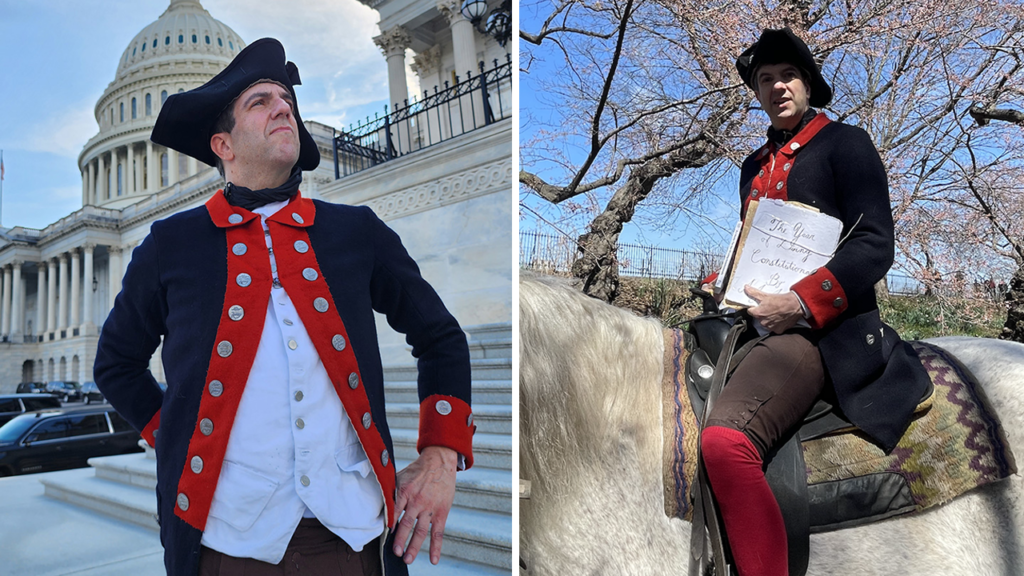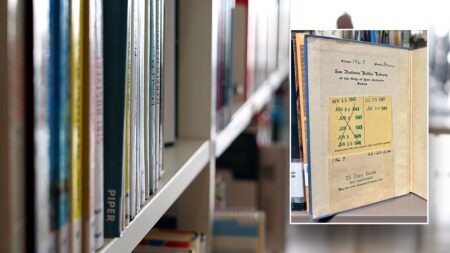of food. So it was like a little festival,” he said. “That’s what the Founding Fathers wanted. They wanted a celebration of democracy. They wanted a celebration of voting. They wanted to draw people in and say, ‘This is exciting. This is a privilege. This is something you should really cherish.’”
Jacobs added, “I interviewed a voting rights activist who said, ‘We have to make it clear to people that this is not just a right. It’s a responsibility. And it’s a joy.’ And that was so different from how most of us have grown up, thinking of voting as a chore.
Now, it’s a great time to learn more about voting, Jacobs said: “2024 is an election year, and it’s coming upon us. And it’s a great year to think about and maybe even respect voting a little more. It’s not just another year.”
5. Cherish free speech
Another “big takeaway was that free speech is a wonderful thing. And we take it for granted,” Jacobs said. “We have this enormous freedom to say things and to publish things and to think things and to criticize our leaders. I’m not entirely sure I should criticize our leaders, because it could seem ungrateful to our government and to the politicians.”
But, he went on with a smile, “I think we should cherish it even more. Because we are in one of the freest countries in the world, and we should take advantage of that.”
As he pointed out, “There are countries where they would throw you in jail if you said anything critical of the government. And we can say it, and it’s in the Constitution. So let’s take advantage of this. Let’s speak out. Let’s dissent. Let’s protest. Let’s criticize. It is a way to make our government better, and any government will say that disagreement and criticism make it better.”
THESE WILL BE THE BIGGEST CITIES IN AMERICA IN 2100, ACCORDING TO THE US GEOLOGICAL SURVEY
6. Honor the branches of government
“I had always known there were three branches of government — check and balance,” said Jacobs. “But I didn’t really know what that meant, or I didn’t really appreciate it. And now I do.”
In his constitutional deep dive, he discovered that the Founding Fathers created the three branches “so that no one branch could get too strong. Because they didn’t trust people. They knew people in power would want more power and never give it back.”
So “they made the three branches,” he said. “And they’ve worked remarkably well, for the most part. I think democracy is in our DNA. I think the separation of powers is in our DNA.”
He appreciates that “Congress got involved, for example, when President Biden was talking about taking the troops out of Afghanistan. And they said no. And they dragged their feet, because Congress has a say in starting and ending wars.”
7. Make history personal
Jacobs said he’s been trying to instill an appreciation for history in his children since they were young, whether by going to Revolutionary War reenactments, visiting landmarks or just talking about historical events.
“My goal is that my kids — when they see a Statue of Liberty or a Liberty Bell or an Uncle Sam top hat — that they get a little stir in their hearts,” he said. “I want them to be proud and excited about America and democracy. And 2024 is the 250th anniversary of the birth of our country. So let’s join in on that.”
Overall, Jacobs embodies the idea that understanding history — by living it, even in small ways, like writing with a quill pen or wearing a tricorn hat — can lead to a deeper appreciation of the rights and privileges we enjoy today. And in this election year, as he applies the lessons learned during his Year of Living Constitutionally, we can all benefit from reflecting on our own relationship with democracy and the Constitution.












